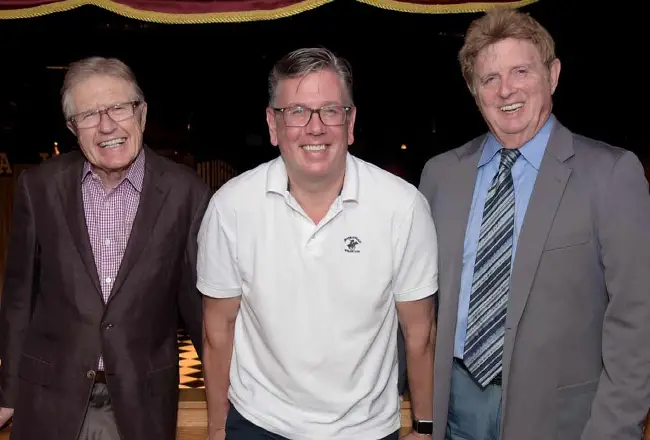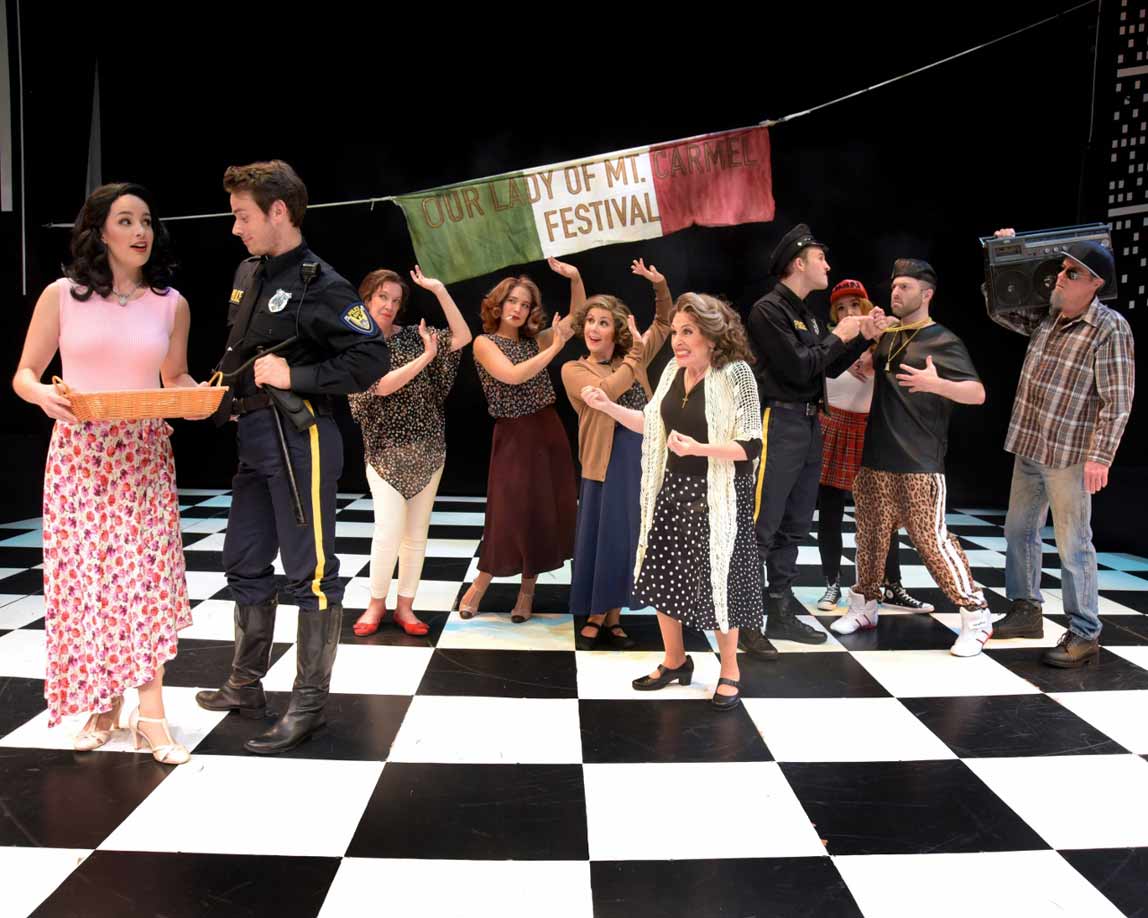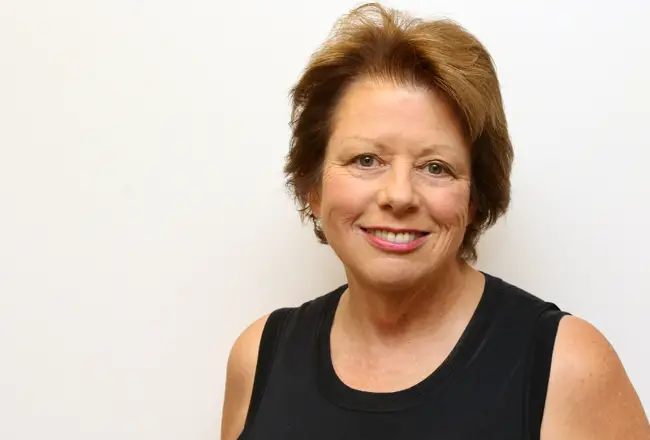
In the 1940s, when Mickey Rooney and Judy Garland said “let”™s put on a show” in a series of made-in-Hollywood MGM musicals, they quickly wound up in a Broadway theater. In 2019, putting on a show at Westchester Broadway Theatre in Elmsford, which the producers hope is headed for Broadway, poses real business challenges, not fictional ones like Rooney and Garland faced.
Bob Funking and Bill Stutler, owners of the Westchester Broadway Theatre (WBT) in Elmsford, are presenting the new show “Mambo Italiano,” billed as “the world premiere of the new Broadway-bound musical.”
This is the 212th production for Funking and Stutler. They opened An Evening Dinner Theatre in July 1974 in Elmsford”™s Cross Westchester Executive Park. In 1991, they moved into a new custom-built facility, which is far larger and grander than the original and named it the Westchester Broadway Theatre. Since the beginning, they have offered ticket buyers a complete package of dinner, show and free parking.
The run of “Mambo Italiano” began on Aug. 8 and continues through Sept. 29.
“We”™ve had a relationship with show director Tom Polum for many years. He”™s done a lot of our shows. Tom came to us with this project he had written with Jean Cheever,” Stutler told the Business Journal.
Cheever was a producer of the Tony-nominated musical “Dirty Rotten Scoundrels” and another show, “All Shook Up,” a musical using the songs of Elvis Presley. She is a board member of Broadway Bank, one of the largest independently owned banks in Texas. The new script by Polum and Cheever is based on the 2003 movie, a comedy-drama, which was directed by Emile Gaudreault with a screenplay written by Gaudreault and Steve Galluccio. Paul Sorvino, Luke Kirby and Ginette Reno were among the cast members.
“They had obtained the rights to the movie, which had been made in Canada and wanted to turn it into a musical. They hired composer James Olmstead who coincidentally conducted the orchestra for ”˜On Your Feet”™ on Broadway all the way through its run and that”™s the show we just did at WBT. Omri Schein wrote the lyrics,” Stutler said.
Funking said it would be unusual if the show goes directly into a Broadway theater after it completes its run at WBT.

“After this run it probably needs another run with more revisions to be made somewhere else in another theater,” Funking said. “Maybe in Pennsylvania. Maybe in Chicago. They are bringing Broadway producers up here to see the show, people who have the wherewithal to get money put together.”
The cost of bringing even a moderately elaborate musical to Broadway has been estimated at $10 million to $20 million and partially depends on how long it takes until it”™s ready for opening night. There was no estimate of what a final cost might be for “Mambo Italiano.”
Funking pointed to the Goodspeed Opera House in East Haddam, Connecticut, as a venue where Broadway-bound shows have been developed including such well-known hits as “Man of La Mancha,” “Shenandoah” and “Annie.”
“If it goes to Broadway, we”™re going to get a percentage. That”™s the way it usually works. Goodspeed has done it quite a few times,” Funking said.
Lisa Tiso, who has been with the theater from its early days and began producing shows in 1992, said doing a brand-new show is quite different from producing Broadway classics such as “West Side Story” or “Carousel.” With a new show, Tiso said, “You”™re creating everything. You”™re creating the characters. You”™re creating the look of the characters. You”™re creating the locale.” Tiso said seeing a new show also is a different experience for an audience.
“Nobody knows the songs,” she said. “It”™s a lot to take in. Our audience is used to us doing a show they”™re familiar with. Whether or not they”™ve ever actually seen the show, they”™re familiar with the music.”
Stutler said although it”™s a new show, the mechanics of bringing it to the stage parallel producing a Broadway classic and it begins with a week of auditions and casting.
“We send out the script and characters to the agents and the director and choreographer and, in this case, the writers and producers and musical director get together and hold auditions,” he said.
WBT has a contract with Actors”™ Equity Association, the union representing professional actors. WBT must follow Equity rules during the audition process.
“Whether it”™s the type of show that has a lot of dancing or hardly any dancing, you have to do separate auditions for dancers who sing, men and women separately, then you have to do singers who dance, again men and women separately. Many times you get the same people, so we spend a day doing that,” he said.
The Equity contract also allows WBT to use some nonunion performers.
Stutler said part of the process of bringing a new show to the stage involves making changes based on audience reaction. This could involve improving a show”™s pacing or changing dialogue and adding laughs.


















